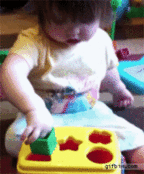1. From Written Off to Writing the Future: Why I am Building Kyne


By Ray Staines, Founder of Kyne
Before founding Kyne, I had a long and winding journey shaped by both struggle and discovery. In this post, I want to share how my experience as a child with undiagnosed learning differences eventually led me to create an early literacy platform focused on earlier intervention, inclusion, and teacher support. This is my story, in four parts.
Part 1: A Parallel Life
I was born in 1957 to working-class parents in inner-city London. At school, I quickly learned that I was somehow different from the other children. I believed I was "thick as a brick" — no good at anything remotely intellectual.
Shame and embarrassment shadowed my school years. Looking back, I now recognise what would likely be diagnosed as Social, Emotional and Behavioural Difficulties (SEBD), followed by depression and anxiety. By my early teens, I had already turned to alcohol and drugs. I could easily have drifted into crime.
But behind my bedroom door, I lived a parallel life. I taught myself electronics by salvaging components from broken TVs. I built radio transmitters and sent signals out into the aether. I contemplated electromagnetic radiation, the theories of relativity, and the mysteries of cosmology. I was immersed in learning — just not the kind recognised by the education system.
"The disconnect between the learner I was and the learner the system saw created a deep cognitive dissonance."
This profound disconnect eroded my mental health and eventually, in my early twenties, I suffered a major psychotic episode. I spent months in hospital and years in recovery. But in hindsight, losing my mind gave me something rare: a completely fresh start.
Part 2: Rebuilding, Discovering
My second life began with carpentry. I worked in the building trades, built my own sailboat, and lived afloat. I crossed the Atlantic four times, delivered yachts across the Mediterranean, and ran a charter boat in the Caribbean. I even patented a system of astronavigation. Eventually, I took to the skies, qualifying as a cross-country glider pilot.
Despite all this, I still carried the belief that I was academically limited. But at 39, I took a leap and enrolled on a Marine Sciences access course. To my surprise, I received high grades — including a few perfect scores in physics. But I struggled immensely with basic maths and essay writing. This led to a diagnosis of dyslexia and a co-occurring Language Processing Disorder.
If my breakdown was a catharsis, then this diagnosis was an epiphany. It explained everything.
Part 3: The Education System Failed Me — and Fails Too Many Others
My life’s pattern suddenly made sense. I hadn’t failed — I’d been failed. The education system was designed for a narrow band of learning styles, and I had simply fallen outside it. My struggle to learn to read and write early on had led to labels like "non-achiever" — and the system had no room for nuance.
I developed a deep belief that a different approach to teaching — one that recognised how I learned — would have changed everything: my confidence, my mental health, and my life chances. More importantly, I realised I wasn’t alone. In the UK, over 5.1 million adults are functionally illiterate. How many of them are undiagnosed dyslexics? How many were written off too early?
"What if the system had noticed I was struggling earlier, and offered support tailored to how I learn?"
I decided to do something about it. I made it my mission to create a neuro-inclusive learning system that helps children — especially those with undiagnosed dyslexia — before they fail.
Part 4: The Kyne Mission
Kyne is the result of that mission. With support from SETsquared Exeter and the University of Exeter, I’ve been developing a play-based EdTech platform that supports early literacy through guided play. But it’s more than just a learning tool — it’s designed to help educators spot children who are struggling with reading before they fall behind.
My own learning differences weren’t obvious at first — they were masked by behaviours, self-doubt, and missed potential. That’s why Kyne starts with something deceptively simple: turning scribbles into letters. It’s playful, engaging, and embedded in everyday classroom life — but it opens the door to identifying how each child learns.
Kyne gives teachers and parents a real-time dashboard — what we call "The Class in Your Pocket" — that provides insight into each child’s progress, helping them act early and effectively. By detecting learning differences in nursery and early primary years, we can make earlier interventions possible or unnecessary, reduce downstream interventions for SEND, and improve classroom efficiency.
We are now seeking a small cohort of early adopters — schools, educators, and families — to help us co-design the future of Kyne. If you believe every child deserves to be seen and supported for how they learn, we’d love you to join us.
🔍 Want to shape the future of early literacy?
Sign up to become an early adopter
Ray Staines is the founder of Kyne, a play-based EdTech platform focused on early literacy and neuro-inclusion. His journey through dyslexia and mental health fuels the mission to support every child, early and effectively.
